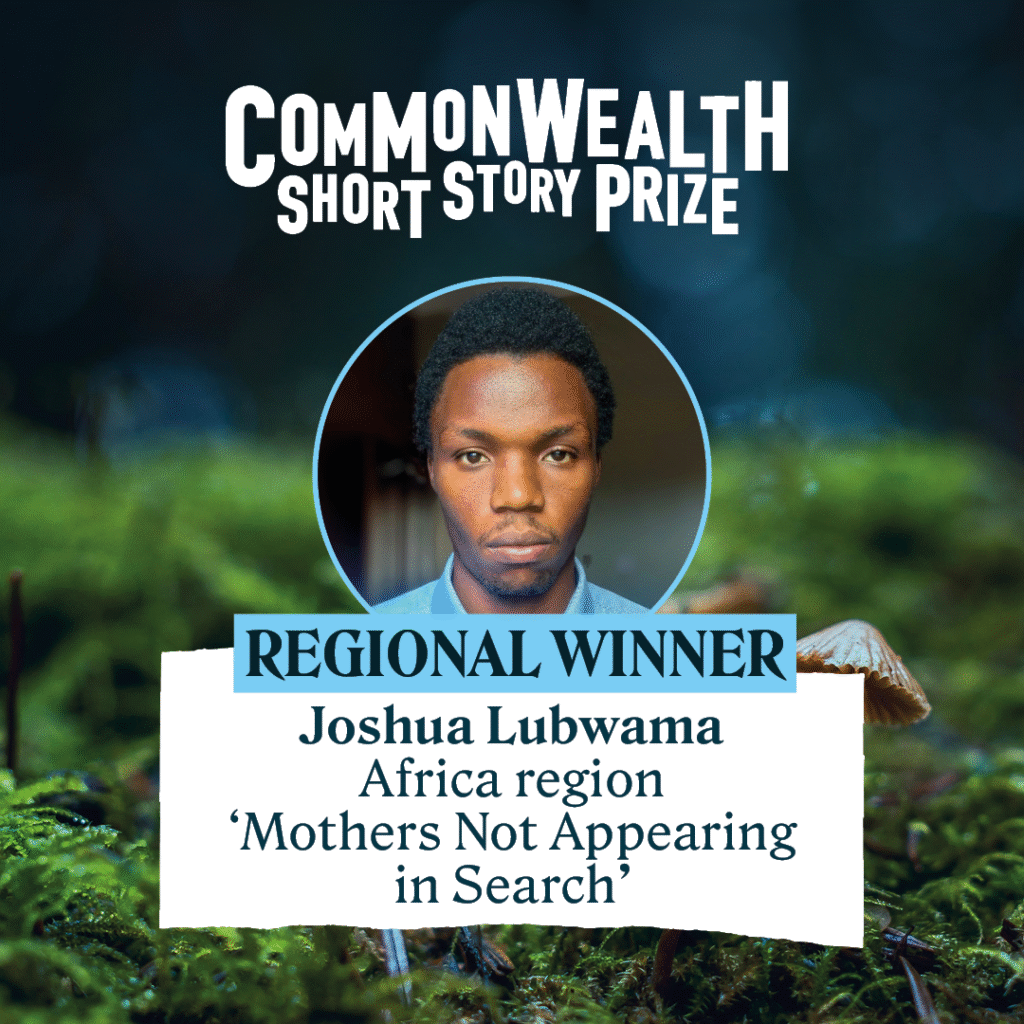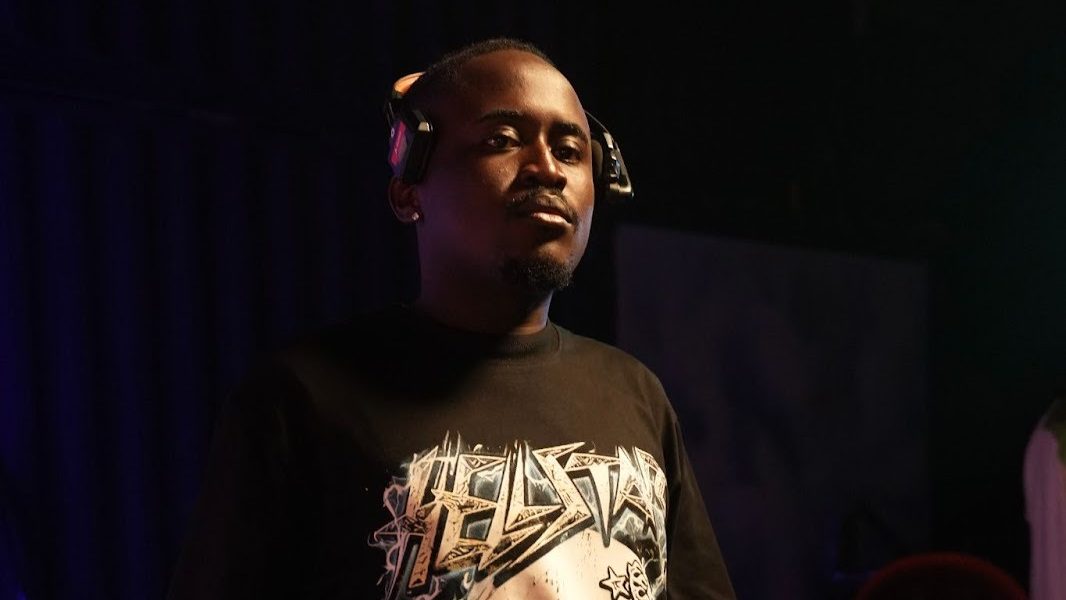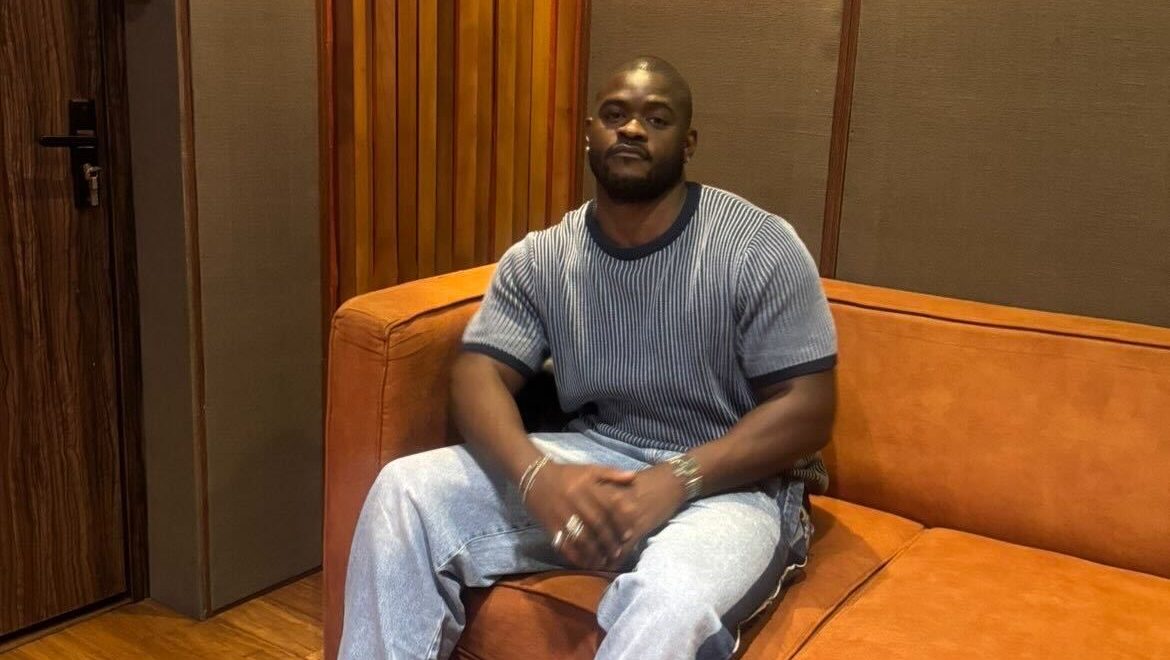Joshua Lubwama is a software engineer and writer from Kampala, Uganda. He is the Africa Region winner of the 2025 Commonwealth Short Story Prize and was longlisted for the 2023 and 2024 Afritondo Short Story Prizes. His work appears or is forthcoming in Granta, adda, and Paper + Ink.
He sits down with the 49th Street to talk writing, the Commonwealth Writer’s Prize and the future of literature in Africa.
How did you feel when you first learned you’d won the 2025 Commonwealth Prize for Africa?
Joshua Lubwama: I was exhilarated. I didn’t believe it at first. It’s still hard to believe. I told a friend the other day that I’m still waking up to the same news. I’ve tried downplaying it in the mirror, but every way I look at it, it’s huge.
Can you tell us about “Mothers Not Appearing in Search”?

Joshua Lubwama: It’s a story about a football-obsessed boy who makes friends with a young woman who has recently moved into the neighbourhood. Their partnership sparks tensions in the boy’s family, and secrets come to light, and a few realisations too.
It’s a coming-of-age story told from the wide-eyed perspective of a ten-year-old boy who wants to be like Ronaldo, and finds much-needed help from the generosity of the newcomer, somebody he’s explicitly been told to stay the hell away from. It’s a story about hopes and dreams and unlikely alliances, it’s a story about pseudo-mothers and the clashing of generations, and it’s also very much about the weight of shame and prejudice.
What drew you to writing initially, and how has your journey as a writer evolved?
Joshua Lubwama: I’ve been a reader most of my life, and I studied literature for four years in secondary school. I liked a girl at school, and I thought I’d write her a poem, so I did. It was my first poem. She didn’t even like it. They never do, do they? I was sixteen then. At twenty-two, I wrote my first short story for publication in a monthly students-only literary magazine my friend and I had founded. I made the transition to fiction that way.
We published thirteen issues of the magazine, and I was the chief editor. I wrote a lot during that period, and that’s how I got started. Man, we had very few submissions coming in, so I was at some point writing both as myself and under a pseudonym, and I necessarily had to differentiate. Teaches you a lot, that sort of thing.
What inspired the writing of “Mothers Not Appearing in Search”?
Joshua Lubwama: The story is partly based on my childhood experiences, and the character of Mother is especially inspired by my late grandmother and her jealous approach to parenting.
How long did this particular work take to complete?
Joshua Lubwama: I wrote and edited the story over the course of nineteen days in October last year.
Were there any challenges you faced while writing it?
Joshua Lubwama: Yeah, a couple. The process of concluding the story was very problematic because I had an alternate ending in mind that was potentially just as strong, and so I had a lot of trouble choosing. I also felt that I was capturing too much in just five thousand words. As has always been the case, I didn’t have anybody to get a second opinion from.
What themes or issues were you hoping to explore through this work?
Joshua Lubwama: Prejudice, shame, hopes and dreams, illiteracy, familial and marital dynamics, and the angst of youth.
What does your typical writing routine look like?
Joshua Lubwama: I try to maintain a daily schedule that includes two ninety-minute slots. I write five hundred good words a day. I work at the computer, mostly. And if it’s out of reach, I have OneNote and Keep Notes on my phone.
Who are some authors or works that have influenced your writing style?
Joshua Lubwama: Harper Lee, Flannery O’Connor, Jhumpa Lahiri, Arundhati Roy. I wonder why the list is women only. Let’s throw in Remy Ngamije, for good measure. But really, he’s such a writer.
How do you approach developing characters and narratives?
Joshua Lubwama: The core idea comes first. It’s either an interesting event or concept or character, or trait. Essentially, I want to look back and say, “Oh, that’s just some story that started out portraying two stupid kids who mistake condoms for balloons.”
Now, people don’t read about that every day, do they? But when they do, you can bet they’ll say, “Oh my God, yes. Kids can be this innocent.” Then, the rest of the narrative builds on top of that. So, it’s the core idea, really. I call it the skeleton of the story. Nothing happens without it. I think of something really captivating, and then I’ll evaluate it for originality, interest, and relatability, in that order. I swear, nothing happens without it. I cannot write without it.
What that usually means is that I’ll end up writing less often because I have to pay attention, or sometimes sit around and wait for that million-dollar idea to come. But over the years, I’ve accumulated a repository of those core ideas. I might note an idea down today that I’ll utilise in July 2026, so no worries there.
Do you have any specific writing rituals or environments that help you create?
Joshua Lubwama: Silence. I’ll pay anything to be afforded some silence. I cannot write in the absence of silence because I’m terrible at tuning things out. But if it’s general noise, like the bustle of town, that’s all right. I’d just hate to have distinct voices or music around me while I’m writing.
As for rituals, I love to write with a split computer screen. The right half is usually a dump for all the ideas relevant to the current project, and the left half is the first draft. Essentially, a palette and a canvas. A lot of auditioning, Ctrl + C and Ctrl + V. This process is only enabled by the pre-existence—in elaborate detail—of the raw ideas. It can feel a lot like carpentry, a profession I’ve a profound reverence for.
How important is it to you to tell African stories from an African perspective?
Joshua Lubwama: You get this question a lot. African stories should be told from African perspectives because there isn’t a substitute for first-hand experience and insider knowledge, at least as far as authenticity and accuracy are concerned. Will that do?
What role do you think African writers play in shaping global conversations?
Joshua Lubwama: African writers are contributing to the corpus of world literature, both offering their different perspectives and backgrounds and also propagating the concept of the universality of our experiences as humans, which is a vital prerequisite for tolerance and peace.
They’re opening up the continent to the rest of the world, is the way I like to think about it. One virtue of literature is that it can transport you around the world without you leaving your seat.
How do you see the current landscape of African literature evolving?
Joshua Lubwama: I don’t know. How do you see it, you? It’s been hard to tell how any landscape is going to evolve, really, since the dawn of AI.
What does winning this prize mean for your career moving forward?
Joshua Lubwama: I’ve read enough about the trajectories of some previous winners to know that there’ll probably be lots of resultant opportunities. But for me, the most desirable thing would be for my parents to finally start to accept and have faith in my career choices, if only I can bring myself to let them know. The whole world knows that I won the Commonwealth Prize but my family don’t.
Away from that, winning the prize means that I have more faith in myself now, and that I can take on future projects with more confidence.
Are you working on any new projects you can share with us?
Joshua Lubwama: I’m hoping to have enough short stories for a collection by the year’s end. There’s this particular story I’m four thousand five hundred words into and it’s a very, what would I say, weird story? Been meaning to tell it for a while, and now I have. I’m going to send it to a soliciting editor at some really cool literary journal, see what she thinks.
And I finally have somebody to get a second opinion from, so I’ll be devastating them as well. Hopefully, this story is better than “Mothers Not Appearing in Search”, or else I’ll just die. Like, why isn’t it better? There’s also the Queen Mary Wasafiri Prize to think about, and I’ve a little over two weeks to come up with something. I’ve been dying to get published in Wasafiri.
What advice would you give to emerging African writers?
Joshua Lubwama: The best advice I’d give to an emerging writer is to pay attention, always. To look out, to listen out. I think a huge part of the writing process is observation, which is essentially paying attention so you can come to the page and bear witness. A big part of writing a good story is having a good story to tell, to begin with. Even the best writing will not resurrect a dead story. So, for God’s sake, pay attention.
Another piece of advice would be to keep writing and putting your work out there. You’ll probably get rejected a few hundred times, but you’ll find that the interesting thing about rejections is that the more you get, the closer you should be to an acceptance. It’s a countdown in some sense, although the number keeps going up, which is I think a beautiful paradox, at least in retrospect.
How do you hope your work will impact readers, particularly young Africans?
Joshua Lubwama: I hope my work can be relevant enough to inspire admiration or at least contempt, but never indifference, because then I’ll know I had something to say. I really want to have something to say someday. Somebody said, “It’s very hard to find your own words, but you don’t actually exist until you do.”
And then if somebody can pick up the pen or the paintbrush or something similar because they read my work and are hoping to have an adventure of their own, that would be something, too.
Is there anything else you’d like our readers to know about you or your work?
Joshua Lubwama: Yeah. I’m not an activist or anything. I’ve no desire to be. I just want to tell good stories about the human condition without being expected to champion some social cause. These social landscapes have a tendency of shifting and swallowing talent.
Where can people find and read your writing?
Joshua Lubwama: “Mothers Not Appearing in Search” has been published online in Granta. It’s also forthcoming in adda and Paper + Ink. I have two short stories in the Afritondo Short Story Prize anthologies “The Anatomy of Flying Things” and “Travelling Men Don’t Die.” They’re up on the website and on Amazon.





